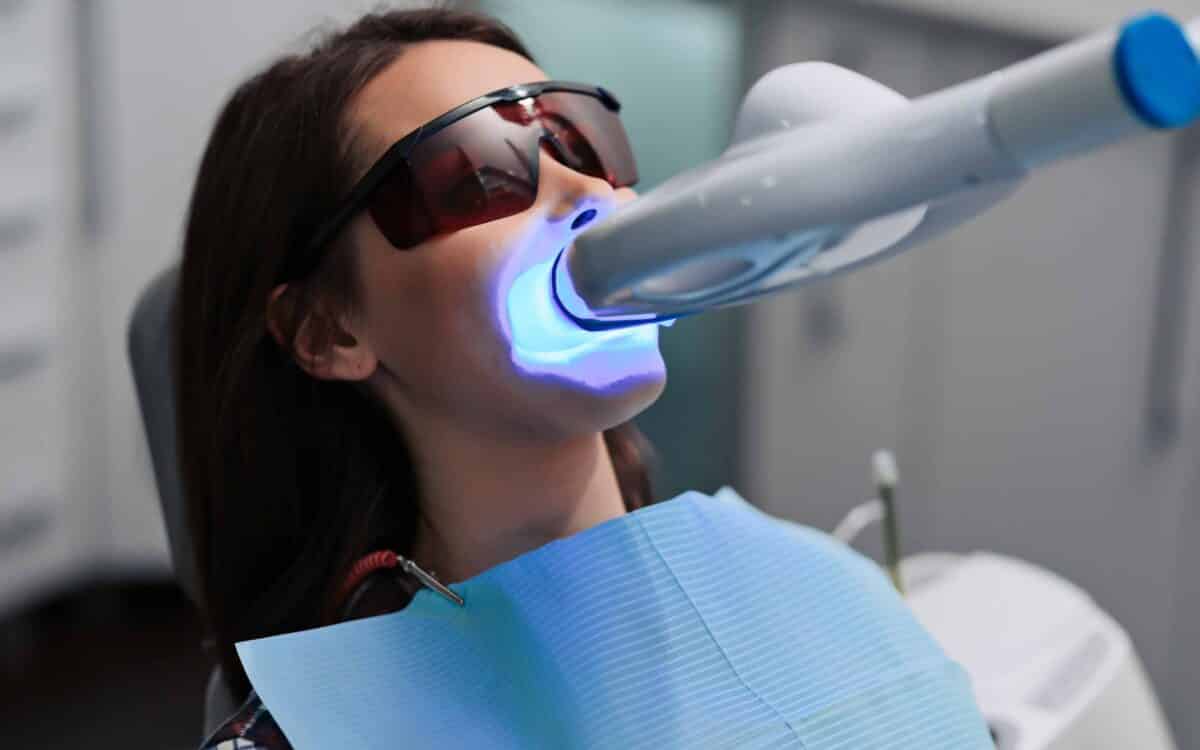Sleep apnea is more than a nighttime breathing problem. It impacts your entire body, especially your sleep apnea oral health, which includes your teeth, gums, jaw joints, and airway function. Many people are surprised to learn that dental symptoms are often the first warning signs of an airway issue. Understanding how sleep apnea impacts your mouth helps you protect your long-term health and get the right treatment early.
At Smith Dentalworks in Oro Valley, Dr. Atty Smith evaluates sleep-related oral symptoms with a gentle, whole-person approach. Our team identifies the oral clues that signal poor sleep and partners with patients to improve breathing, comfort, and total wellness.
What is Sleep Apnea and Why Does It Affect Oral Health?
Sleep apnea occurs when your airway repeatedly becomes blocked during sleep. When airflow stops, the body struggles for oxygen. This triggers stress responses that affect the teeth, jaw, and soft tissues in your mouth.
The most common type, obstructive sleep apnea, is often linked to tongue position, jaw alignment, and airway shape. Since these factors are closely connected to dental health, dentists are typically the first providers to spot early symptoms.
Patients with untreated sleep apnea often experience dry mouth, enamel wear, gum irritation, headaches, and jaw pain. Many of these symptoms appear long before a formal medical diagnosis.
What Dental Signs of Sleep Apnea Should You Watch For?
Your mouth can reveal several clues that your breathing may be disrupted at night. Common signs include:
- Severe dry mouth: Mouth breathing during apnea episodes reduces saliva production. This raises the risk of cavities, gum disease, and chronic bad breath.
- Flattened or worn-down teeth: Many patients clench or grind their teeth when their airway collapses. The jaw tries to push forward to open the airway, which can lead to cracked teeth, sensitivity, and headaches.
- Receding gums or gum irritation: Reduced saliva and nighttime jaw pressure can irritate the gums and make them more prone to inflammation.
- Morning headaches and jaw soreness: Clenching during breathing interruptions strains the jaw muscles and TMJ, which often leads to morning discomfort.
- Tooth fractures or damaged dental work: Grinding forces may break crowns, fillings, or veneers.
When these symptoms appear together, dentists often suspect an underlying airway issue.
How Can a Dentist Help Identify Sleep Apnea?
Dentists are uniquely positioned to catch sleep apnea early because they regularly examine the teeth, airway, and bite. At Smith Dentalworks, Dr. Atty Smith evaluates:
- Tongue size and resting position
- Jaw shape and alignment
- Wear patterns on teeth
- Signs of dry mouth or reduced saliva flow
- Narrow airway indicators
- TMJ function and muscle tension
These findings help determine whether your oral symptoms match the profile of airway-related sleep disturbances. When needed, we coordinate medical sleep testing to confirm a diagnosis.
What Treatment Options Can Improve Sleep Apnea Symptoms?
For many patients with mild to moderate obstructive sleep apnea, custom dental appliances can provide an effective and comfortable alternative to CPAP therapy. As part of our Sleep Apnea Treatment services, these devices gently reposition the jaw to keep the airway open, allowing for smoother breathing throughout the night.
At Smith Dentalworks, our Oro Valley sleep apnea treatment approach includes custom oral appliance therapy tailored to your bite, airway needs, and comfort preferences.
Benefits include:
- Better airflow during sleep
- Reduction in snoring
- Less clenching and grinding
- Improved sleep quality
- Greater comfort compared to CPAP
- Reduced morning headaches and jaw soreness
Patients often report better rest, more energy, and noticeable improvement in dental symptoms within weeks of treatment.
How Does Smith Dentalworks Support Your Long-Term Oral and Sleep Health?
Our approach focuses on overall wellness, not just treating individual symptoms. We combine advanced dental evaluation, airway-focused screenings, and modern oral appliance therapy to help patients improve sleep and protect their oral health.
At our spa-like Oro Valley practice, you receive compassionate, personalized care that supports both your comfort and your long-term health goals. Dr. Atty Smith will guide you through each step, from evaluating symptoms to selecting the right treatment option for your lifestyle. If you are experiencing any of these symptoms or want to learn more about sleep apnea treatment, contact us today to schedule an appointment.
FAQs
- Can sleep apnea cause tooth damage?
Yes. Clenching and grinding are common responses to airway blockage. These forces can crack teeth, wear enamel, and damage dental restorations.
- Is dry mouth a symptom of sleep apnea?
Dry mouth is one of the most common signs. Mouth breathing during apnea episodes reduces saliva, which increases the risk of cavities and gum disease.
- Are dental appliances a good alternative to CPAP?
For many people with mild or moderate sleep apnea, custom oral appliances are an effective and more comfortable option than CPAP machines.
- Can a dentist diagnose sleep apnea?
Dentists cannot diagnose sleep apnea, but they can identify warning signs and refer you for a medical sleep study. They also provide oral appliance therapy after diagnosis.
- What happens if sleep apnea goes untreated?
Untreated sleep apnea contributes to high blood pressure, heart strain, dental damage, fatigue, cognitive issues, and chronic inflammation.











